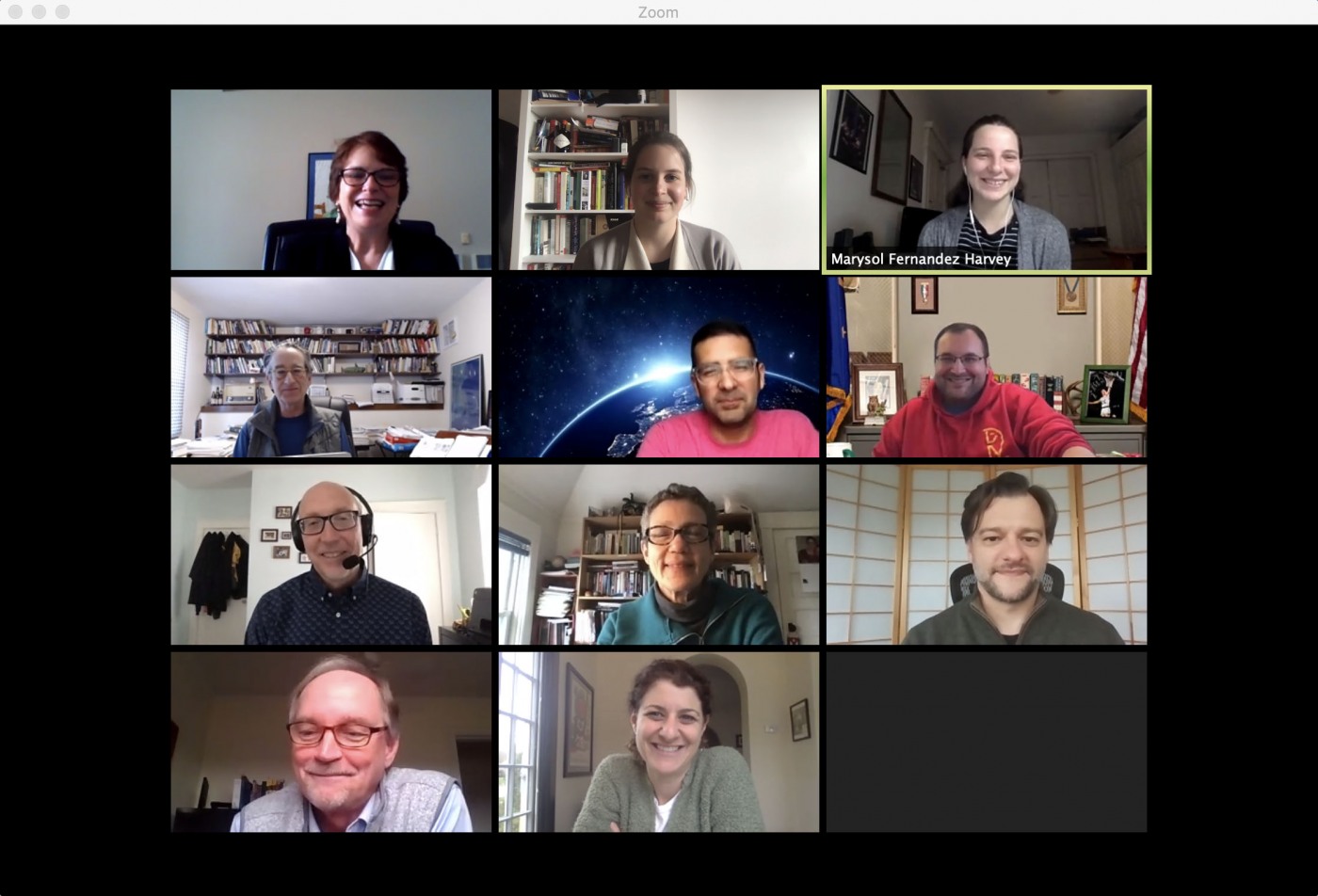
PROVIDENCE, R.I. [Brown University] — Marysol Fernandez-Harvey, a junior at Brown concentrating in comparative literature and economics, has been named one of 62 Harry S. Truman Scholars for 2020.
Awarded annually to selected college juniors across the United States, the scholarship recognizes students who demonstrate exceptional academic ability and commitment to public service.
“The Truman scholarship is arguably the most prestigious award for college juniors in the country,” said Linda Dunleavy, the University’s associate dean of the College for fellowships. “Because Brown's emphasis on independent learning marries well with its civic-minded ethos, students here are emboldened to take risks in the services of a greater good. Marysol is a stunning example of a student who creatively integrates her diverse academic pursuits with her campus and community involvements in ways that serve a larger purpose.”
Fernandez-Harvey learned that she won the award during a Zoom call with Brown President Christina Paxson, Dunleavy, and the faculty and staff members who advised her during the eight-month application process.
“I got on the call with the President, and there I saw the rest of the committee that’s been a great help throughout this process,” she said. “It was a really nice moment of celebration and closure.”
Truman Scholars receive $30,000 for graduate study intended to prepare them for careers as public service leaders. They also receive leadership training, career and graduate school advising and internship opportunities within the federal government.
Fernandez-Harvey will use the scholarship to pursue a degree in constitutional law. With this training, she aspires to aid the residents of her native Puerto Rico in establishing a political identity for their country.
“Because of Puerto Rico’s colonial history, its people have not had the opportunity to determine for themselves what they want the future of their community to look like,” she said.
To address this issue, Fernandez-Harvey hopes to join current efforts to revise Puerto Rico’s constitution, in close consultation with its residents, to ensure it reflects their vision for the commonwealth’s future.
By supporting an advanced degree in constitution law, the Truman Scholarship will directly impact Fernandez-Harvey’s ability to join these efforts: “Having a law degree will help me access the federal and local policy spaces where this conversation is being shaped.”
Fernandez-Harvey’s experiences at Brown have provided her with a robust foundation for public service work, she said. As an opinion columnist for the Brown Daily Herald, she has focused much of her writing on issues facing Puerto Rico. And her position as director of MEZCLA, Brown’s Latin dance troupe, has allowed her to develop her “community building and leadership skills in a way that celebrates identity and mobilizes people.”
Brown’s Open Curriculum has encouraged Fernandez-Harvey to also pursue coursework that has shaped her vision of public service. Having the freedom to concentrate her studies in comparative literature and economics — disciplines that are not traditionally combined — has equipped her with “two different ways of exploring the world,” each essential, she said, to the community advocacy she intends to pursue.
“From literature, I have been given a history of human experiences and emotions, and I’ve been able to hone my communications skills and writing skills,” she said. “From economics, I’ve started to understand the numbers and statistics that run our world in lots of ways. Both will very directly influence the kind of work that I'll be doing.”
Fernandez-Harvey’s commitment to helping Puerto Rico establish an independent political voice, coupled with her innovative coursework and rich extracurricular commitments, made her an ideal candidate for the Truman Scholarship, Dunleavy said.
“Marysol stands out for her bold work across disciplinary boundaries and within organizations on campus and beyond, all of which cohere around her commitment to improving Puerto Rico’s cultural and national identity,” she said.